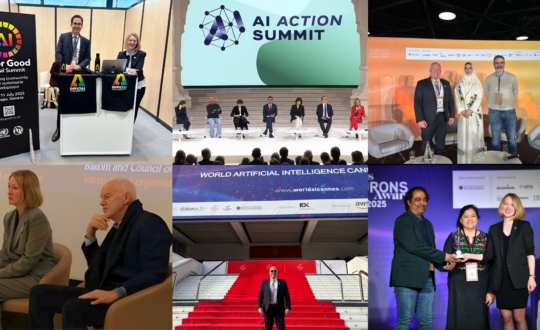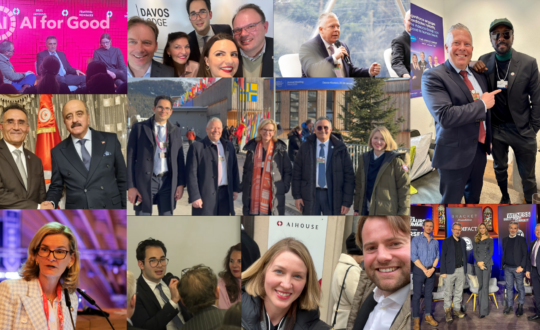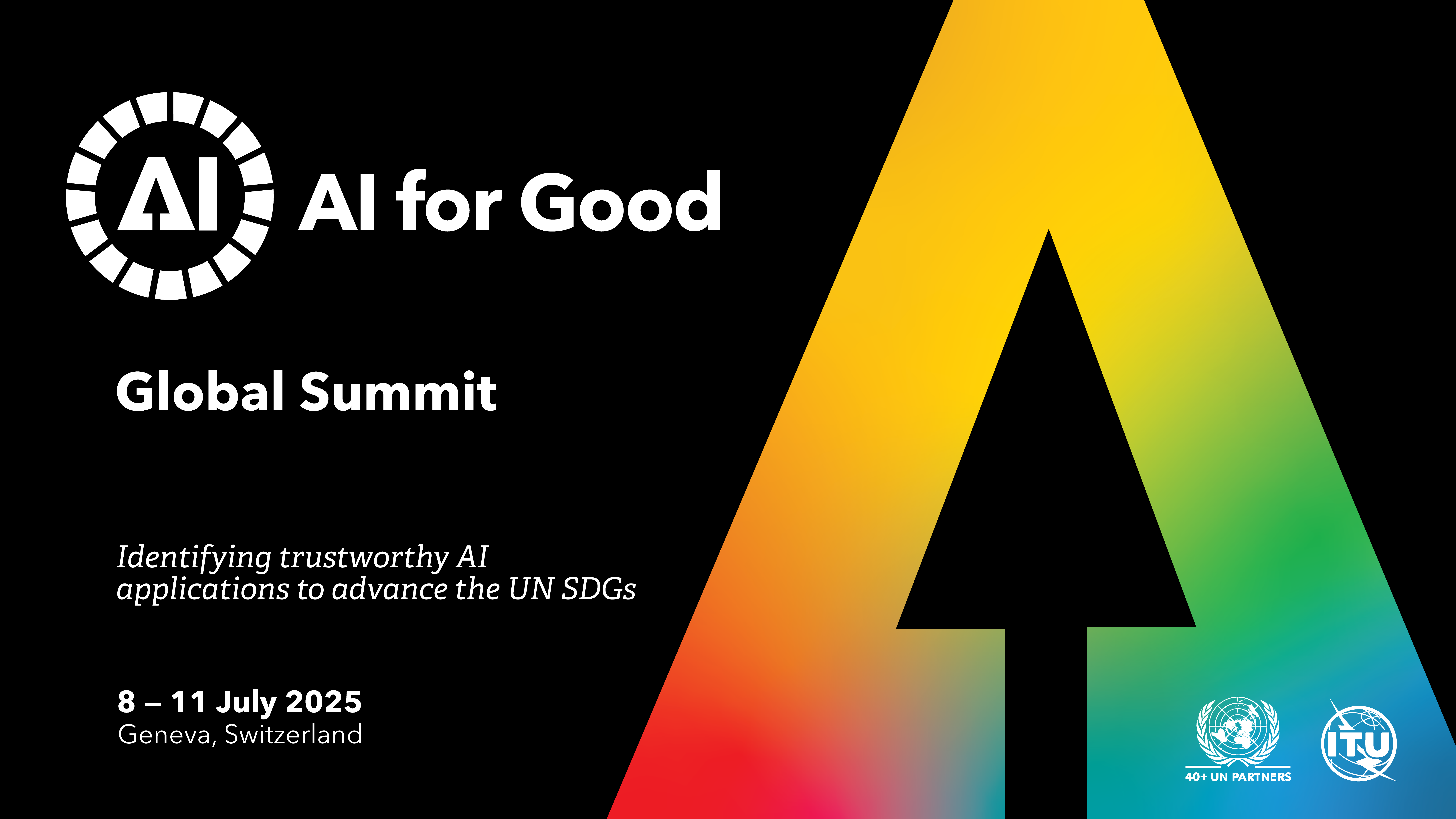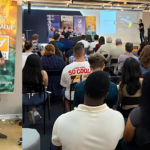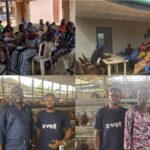The landscape of work is rapidly evolving, driven by unprecedented technological advancements and global challenges. In June, the Geneva Graduate Institute hosted The Future of Work Summit 2024, featuring a compelling panel discussion on “The Future of Working Together.” Distinguished experts shared their insights on how organizations and societies can navigate this dynamic environment.
The panel, moderated by Kitrhona Cerri, Executive Director at TASC Platform, included Safak Pavey, Senior Advisor, Multi-Stakeholder Engagement at UNHCR, Richard Samans, Director of Research at the International Labor Organization (ILO) and Frederic Werner, Chief, Strategy and Operations at AI for Good ITU. Each brought a wealth of experience and perspectives to the table, emphasizing the need for innovative, inclusive, and collaborative approaches to address the complexities of the modern workforce.
Safak Pavey highlighted the importance of multilateralism in addressing global challenges, particularly in the humanitarian sector.
UNHCR are the most represented organization globally “operating in 135 countries and 550 locations,” she noted, emphasizing the need for diverse stakeholders to work together.
Pavey pointed to the Global Refugee Forum as a model for modern multilateralism, where various actors, including refugees, states, private sectors, and civil society, come together to share responsibility and find sustainable solutions. Pavey’s insights underscored that collaboration is not just beneficial but essential. The complexity and scale of contemporary issues, such as refugee crises and climate change, demand a coordinated effort across different sectors and disciplines. She called for strengthening the humanitarian-development-peace nexus to create a more cohesive and effective response to global challenges.
Richard Samans, addressed the profound impact of AI and automation on the labor market, stressing the need for proactive governance. The ILO, with its tripartite structure involving governments, employers, and workers, is uniquely positioned to navigate these changes. Sammons emphasized the importance of dialogue and analysis in understanding the implications of AI, noting that while automation can augment human work, it also presents significant challenges, including increased labor market churn and the need for continuous upskilling.
“Uncertainty can paralyze, but the role of international organizations is to help break the problem down,” Sammons explained.
He advocated for an ecosystem approach to economic policy, where various institutional levers are used to ensure equitable distribution of the benefits of technological advancements. This holistic view considers not just the immediate economic impacts but also the broader social implications, such as worker surveillance, data protection, and occupational health.
Frederic Werner discussed the potential of AI to drive positive change, particularly through initiatives like AI for Good. He highlighted the rapid pace of AI development and the need for inclusive governance frameworks. Werner shared that AI for Good focuses on identifying practical applications of AI to advance the Sustainable Development Goals (SDGs), emphasizing the importance of standards and benchmarks to ensure these technologies are used responsibly and effectively.
One of the significant challenges Werner identified is data sharing. “AI needs data to run […], and the level of digitization is not there yet,” he said.
He called for more efforts to create inclusive data sets that reflect diverse cultures and realities. Werner also pointed out the need for systems to evaluate the efficacy of AI applications, especially in critical areas like healthcare, where AI can significantly improve outcomes if used correctly.
The panelists collectively highlighted that the future of work requires a multifaceted approach, involving policy innovation, technological advancements, and collaborative frameworks. Pavey called for a stronger integration of peace actors into the humanitarian and development efforts, emphasizing that without addressing the root causes of conflicts, sustainable solutions would remain elusive.
Samans stressed the need for an updated growth and development model that places as much emphasis on equitable distribution and social justice as it does on economic growth. He argued against simplistic solutions like Universal Basic Income (UBI), advocating instead for a more comprehensive approach to economic policy that addresses the diverse needs of society.
Werner underscored the potential of AI to bridge gaps and create opportunities, provided there is a concerted effort to manage its deployment responsibly. He emphasized the role of international standards and frameworks in ensuring that AI benefits are shared equitably across different regions and communities.
The FOW24 panel on “The Future of Working Together” provided a rich tapestry of insights, reflecting the complexities and opportunities of the modern workforce. The discussions underscored the need for inclusive, innovative, and collaborative approaches to navigate the challenges posed by technological advancements and global uncertainties. As organizations and societies move forward, the principles of multilateralism, equitable distribution, and responsible governance will be crucial in shaping a future where the benefits of progress are shared by all.






